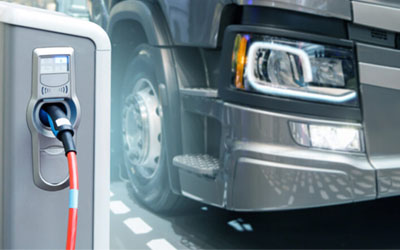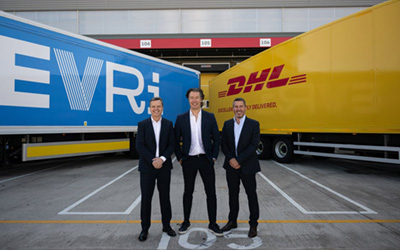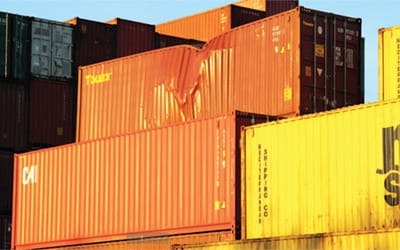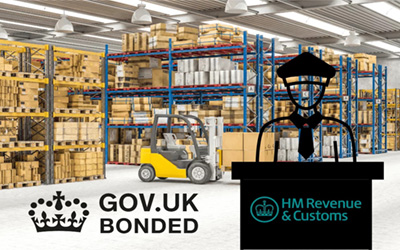HGV Decarbonisation Needed to Meet Net Zero
In today’s world, the urgency to address climate change has never been more pressing. As nations strive to achieve net-zero emissions, every sector must play its part in mitigating carbon footprints. One critical area that demands immediate attention is Heavy Goods Vehicles (HGVs). Decarbonising this sector is paramount to reaching sustainability goals and securing a greener future.
Current Scenario
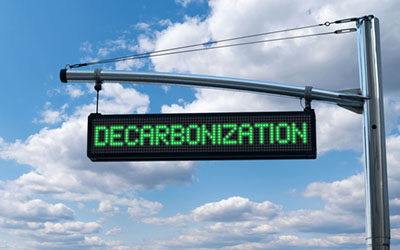 HGVs are indispensable for transporting goods across vast distances, but they come with a significant environmental cost. These vehicles account for a substantial portion of carbon emissions globally. The reliance on diesel fuel exacerbates the issue, contributing to air pollution and climate change. Despite advancements in engine technology, the sheer volume of HGVs on the roads poses a challenge to decarbonisation efforts.
HGVs are indispensable for transporting goods across vast distances, but they come with a significant environmental cost. These vehicles account for a substantial portion of carbon emissions globally. The reliance on diesel fuel exacerbates the issue, contributing to air pollution and climate change. Despite advancements in engine technology, the sheer volume of HGVs on the roads poses a challenge to decarbonisation efforts.
Initiatives for Decarbonisation
Recognizing the gravity of the situation, organizations like the Green Finance Institute have taken proactive steps towards decarbonising HGVs. Through collaborative efforts with industry stakeholders and policymakers, they are devising strategies to transition to cleaner alternatives. These initiatives focus on delivering net-zero emissions by leveraging innovative technologies and sustainable practices.
Transition to Carbon Neutrality
Electric Vehicle (EV) decarbonisation emerges as a promising solution to reduce HGV emissions. By electrifying the fleet, companies can significantly curb their carbon footprint and move closer to carbon neutrality. However, transitioning to Electric Vehicles involves overcoming logistical and infrastructural challenges. Investments in charging infrastructure and battery technology are imperative to support widespread adoption.
UK Government Grants
 Currently, the UK government offers a grant for low-emission trucks: £16,000 for small trucks (between 4.25 and 12 tonnes gross weight) and £25,000 for large trucks (over 12 tonnes gross weight). There are currently no grants available for fully-electric HGVs, something the Green Finance Institute report recommends creating to increase electric vehicle uptake.
Currently, the UK government offers a grant for low-emission trucks: £16,000 for small trucks (between 4.25 and 12 tonnes gross weight) and £25,000 for large trucks (over 12 tonnes gross weight). There are currently no grants available for fully-electric HGVs, something the Green Finance Institute report recommends creating to increase electric vehicle uptake.
For the entire UK HGV fleet to be replaced with zero-emission trucks, the Green Finance Institute estimates that it would cost between £41-£75 billion, with the installation of depot infrastructure potentially costing an additional £24 billion. If the government were to add public electric charge points, as the report suggests, the total cost could be as high as £100 billion.
Whilst this represents a significant cost, the report also estimates that the transition to fully-electric HGVs could create a £100 billion investment opportunity in the UK. However, failure to provide the supporting infrastructure puts the transition to a zero-emission road freight and logistics sector at risk. The accelerated pace of public Electric Vehicles adoption over the last few years could also stand to benefit the freight sector. Public Electric Vehicle ownership has been increasing at a compound annual growth rate of 55% between 2015 and 2020 according to the GFI’s ‘Road to Zero’ report.
Impact on Environment and Economy
The benefits of HGV decarbonisation extend beyond environmental preservation. By embracing sustainable practices, companies can enhance operational efficiency and reduce operating costs in the long run. Furthermore, transitioning to cleaner fuels promotes a healthier environment and improves air quality, benefiting communities near transportation hubs.
Future Prospects Electric Vehicles
Looking ahead, the journey towards net-zero emissions for HGVs requires a concerted effort from all stakeholders. Setting ambitious targets and investing in research and development are essential for driving innovation in this sector. Emerging technologies like hydrogen fuel cells and renewable energy sources offer promising avenues for achieving sustainability goals. With continued collaboration and commitment, the vision of a carbon-neutral transportation industry can become a reality.
Conclusion:
HGV decarbonisation is not just a necessity but a moral imperative in the fight against climate change.
By embracing cleaner technologies and sustainable practices, we can mitigate the environmental impact of heavy goods transportation while fostering economic growth. The transition to net-zero emissions requires collective action, and by working together, we can build a more sustainable future for generations to come.
Road to Net Zero
SARR Logistics UK takes Corporate Social Responsibility seriously. Our operations are guided by a strong set of ethical values and strategies that prioritize the well-being of the planet. By choosing us as your freight forwarding partner, you are not just selecting a service provider – you are becoming a part of a movement to make the world a greener and healthier place for generations to come.
Connect with SARR Logistics UK today to fine-tune your shipping strategies and elevate your business performance!
FAQs
 Q: Why is HGV decarbonisation important?
Q: Why is HGV decarbonisation important?
A: Decarbonising HGVs is crucial for reducing carbon emissions and combating climate change, as they are significant contributors to air pollution and global warming.
Q: What role does the Green Finance Institute play in decarbonisation?
A: The Green Finance Institute collaborates with industry stakeholders and policymakers to develop strategies and initiatives aimed at transitioning HGVs to cleaner alternatives.
Q: What are the challenges in transitioning to Electric Vehicle decarbonisation?
A: Challenges include the need for extensive charging infrastructure, advancements in battery technology, and overcoming logistical barriers in the adoption of electric vehicles.
Q: How does HGV decarbonisation benefit the economy?
A: Transitioning to cleaner fuels and sustainable practices can enhance operational efficiency, reduce operating costs, and foster economic growth in the long term.
Q: What are the future prospects for HGV decarbonisation?
A: Continued investments in research and development, along with the adoption of emerging technologies like hydrogen fuel cells, offer promising prospects for achieving net-zero emissions in the heavy goods transportation sector.


